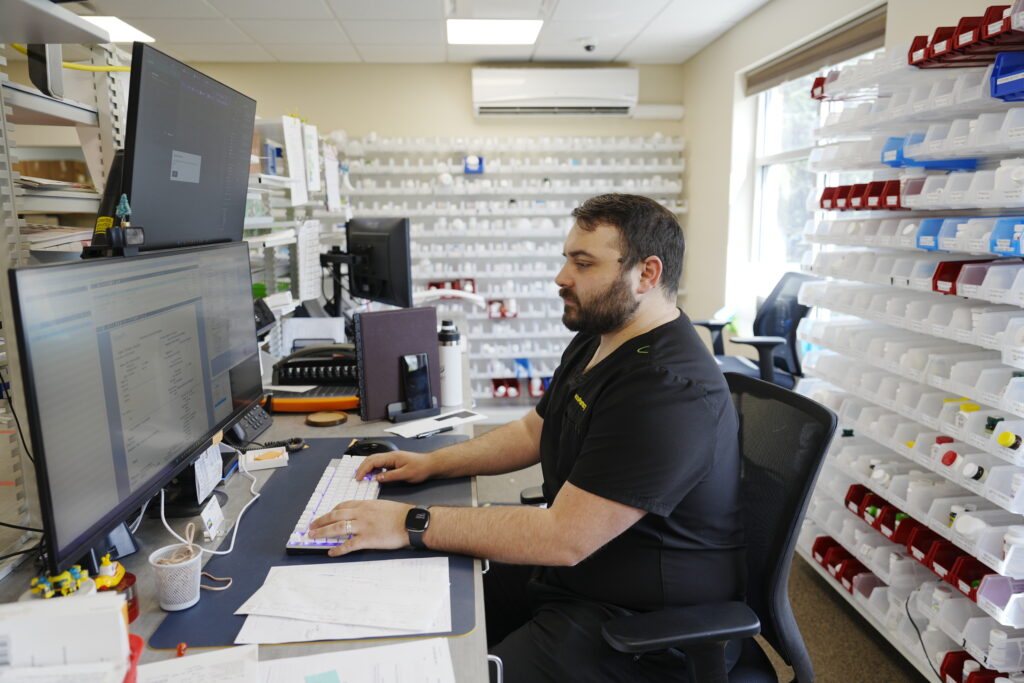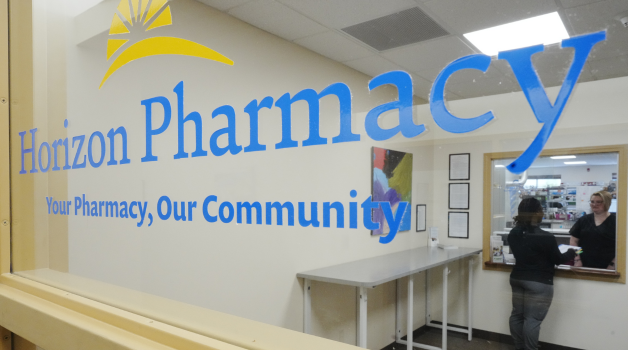LTC Pharmacies Empower CCBHCs in Behavioral Health
Contributed by Jason Dana Costa, President and CEO, Horizon Pharmacy
Would you believe that Rhode Island, a state nestled among world-renowned hospital systems and a high density of biotech and medical research, has among the highest rate of adult mental illness in the United States at 24%1of the state’s population? That’s nearly one in four of the state’s adults living with a mental health challenge. Additionally, Rhode Island surpasses both the national average as well as all other New England states for adult inpatient admissions due to mental illness. And there’s more. Adults in Rhode Island report unmet needs for behavioral health services more frequently than adults in other New England states. Furthermore,34%2 of Rhode Island children who required mental health treatment or counseling in the past year did not receive it. This issue is particularly pronounced for young adults experiencing first psychotic episodes who require intensive services.
What is the solution? Certified Community Behavioral Health Clinics (CCBHC)
In 2015, the Substance Abuse and Mental Health Services Administration (SAMHSA) published a set of criteria to improve community mental health centers and to establish CCBHC. In October 2024, Rhode Island joined the group of 183 states in the national demonstration program of this initiative.
CCBHCs are specialized clinics that provide a wide range of behavioral health services, including mental health and substance use support. These clinics provide services to individuals of all ages—regardless of their insurance status or ability to pay. CCBHCs are certified by the state and offer a comprehensive range of services, including 24/7 crisis support.
These specialized clinics are designed to serve as a critical part of the behavioral health safety net. They increase access to care and provide care for very challenging populations — individuals with serious mental illnesses and substance use disorders. As part of their mandate, CCBHCs are required to collaborate with other healthcare providers, community organizations, and social service agencies to provide more comprehensive support to clients trying to navigate complexities of their healthcare. This includes streamlining the referral process, improving care coordination, and ensuring holistic care. One important collaboration is with the pharmacy partners.
Pharmacy collaboration is important because CCBHC’s specifically support patients using programs such as Medication Assisted Treatment (MAT) also known as Medications for Opioid Use Disorder (MOUD), Intensive Outpatient Programs (IOP), Opioid Treatment Program (OTP), and alcohol use disorders. An important aspect to the success of these evidence-based programs is good medication adherence—another area where patients need strong support. Pharmacies work to provide this support. One such example is providing clients with multi-dose packaging.
How does multi-dose packaging support CCBHC and its clients?
In behavioral health, individuals require clear instructions to adhere to complicated medication regimens. Multi-dose packaging is an important tool to help. It utilizes cold-sealed or heat-sealed blister packs, organizing medications by specific times and dates into a 28-blister card. Each blister contains medication for a particular time of day and is color-coded to correspond with the time (e.g., yellow for morning, white for noon, orange for evening, blue for bedtime). This approach ensures that individuals receive the correct dose at the appropriate time. It is also designed to increase medication adherence.
Multi-dose packaging is one way to support medication adherence. Another way that long-term care (LTC) pharmacies can help CCBHC’s and the patients they serve is through a combination of prompt drug reviews and efficient medication adjustments (such as repacks), which increases adherence and reduces hospitalizations. CCBHC’s also benefit from collaborations with LTC pharmacies that incorporate Quality Improvement (QI) programs, hold quarterly coordination meetings with medical and nursing teams, and provide consultations for specific challenging cases.

Who is Horizon Pharmacy and how are we unique?
It’s been established that Rhode Island has a significant need when it comes to mental health services. Horizon Pharmacy seeks to be part of a solution to serve our constituents.
Horizon Pharmacy’s motto is, Your Pharmacy, Our Community. We live it every day.
Founded in 2014, we are a statewide closed-door long-term care pharmacy providing packaged medication for complex care patients. Owned by Community Care Alliance, Thrive Behavioral Health, and Newport Mental Health, Horizon Pharmacy aims to enhance medication services and treatments, and generate revenue for its non-profit owners so they can continue to support their combined mission of quality behavioral healthcare in Rhode Island.
Horizon offers customized training, including mental health first aid to all staff, board certification for pharmacists, and advanced pharmacy technician training, at no cost. This ensures best-in-class medication management for patients while enabling access to behavioral and substance use healthcare at free or reduced costs for over 1,000 individuals annually (via our nonprofit partners).
Does the program really make a difference?
Since its founding in 2014, Horizon Pharmacy has enhanced therapeutic outcomes in long-term care through the delivery of customized pharmaceutical services. Our initiatives have also advanced the quality of behavioral health services throughout Rhode Island. This is evidenced through our proven results.
Recently, Horizon Pharmacy commissioned a comprehensive review of claims data with Integrated Healthcare Partners, an Accountable Care Organization. Our goal was two-fold: assess our work in supporting the CCBHC programs’ goal of increasing behavioral health utilization across the state; and establish specific pharmacology benchmarks for CCBHCs. The findings were compelling.
For the calendar years 2022-2024, Horizon Pharmacy and the patients served demonstrated the results below. Of patients engaged with Horizon Pharmacy vs. other retail and LTC pharmacies:
• 14.3-28.5% were more likely to achieve compliance with the CCBHC depression medication measure.
• 9.1-10.7% would achieve compliance with the CCBHC Schizophrenia medication measure.
• 22-36% less likely to use the emergency department (ED).
• 38-45% less likely to use inpatient services for diabetes or hypertension.
• 5-7% better compliance with blood pressure medication.
These impressive benchmarks quantitatively show that close collaboration between Horizon Pharmacy and CCBHC’s
results in significant reductions in the Total Cost of Care (TCC) for both individuals as well as insurance providers.
Where do you see future opportunities?
Among the required services of CCBHC are evidence-based practices such as Medication Assisted Treatment (MAT) and care coordination for Opioid Treatment Program (OTP) that are intended to engage individuals outside of an in-patient or emergency service setting. These treatment modalities often include short term medications provided to patients to stabilize and provide comfort. For example, a patient experiencing withdrawal who is stable and comfortable
will more likely agree to enter a 30-day detox treatment program.
At Horizon Pharmacy, we believe we can help patients get access to these short-term medications
in a safe and efficient way by implementing Automated Storage and Distribution Devices (ASDD). These devices can be in licensed facilities operated by licensed healthcare professionals.
The benefits of using automated dispensing onsite at these facilities, where the ASDD machine is controlled by the pharmacy servicing that facility, is that it provides security, increased accountability, and overall cost savings on medications. In addition, the ASDD machine facilitates immediate access to life-saving addiction treatment, truly meeting patients where they are now. This model has facilitated the growth of new medications for opioid use disorder treatment that often starts in addiction treatment clinical settings.4
However, despite these benefits, there are obstacles in implementing automated dispensing broadly. Automated dispensing is regulated by each state’s board of pharmacy and that means 51 different policies nationwide. Some states are very permissive in the use of technology while others are not. These states cite patient safety, compliance, and general lack of oversight as the main reasons for not allowing the machine to be used.
We hope this will change.
What can your LTC pharmacy do?
Train pharmacy staff in empathy and compassion to better engage with individuals in the mental health community. At Horizon Pharmacy, all employees undergo mental health first aid training for adults and children, enhancing their sensitivity and confidence in these interactions. Our customer service training is designed for technicians to engage nursing,
residential, and prescribing staff in long-term care settings.
Engage with your state behavioral health and substance use authority, as well as the community mental health providers in your area. Ask them if they are aware of CCBHC and if so, ask if they have a roadmap for its adoption.
Integrating CCBHC with LTC pharmacy assets can reduce costs for patients and community health systems. This will be critical as federal government continues to review Medicaid, SAMSHA, and other programs for continuation and funding.
Regardless of the CCBHC status in your community, LTC pharmacies have tools available for these communities of care.
It is advisable to establish these connections and relationships.
Be curious and active.
References:
1 Mental Health America from 2024 ranks Rhode Island as 31st in the percentage of adults with any mental illness, with a percentage of 24.67%.
2HHS TAGGS-https://taggs.hhs.gov/Detail/AwardDetail?arg_AwardNum=H79SM081870&arg_ ProgOfficeCode=80
3Alabama, Illinois, Indiana, Iowa, Kansas, Kentucky, Maine, New Hampshire, New Mexico, Michigan, Missouri, Nevada, New Jersey, New York, Oklahoma, Oregon, Rhode Island, and Vermont.
4 Taylor JL, Laks J, Christine PJ, et al. Bridge clinic implementation of “72-hour rule” methadone for opioid withdrawal management: Impact on opioid treatment program linkage and retention in care. Drug Alcohol Depend. 2022;236:109497. doi:10.1016/j.drugalcdep.2022.109497





